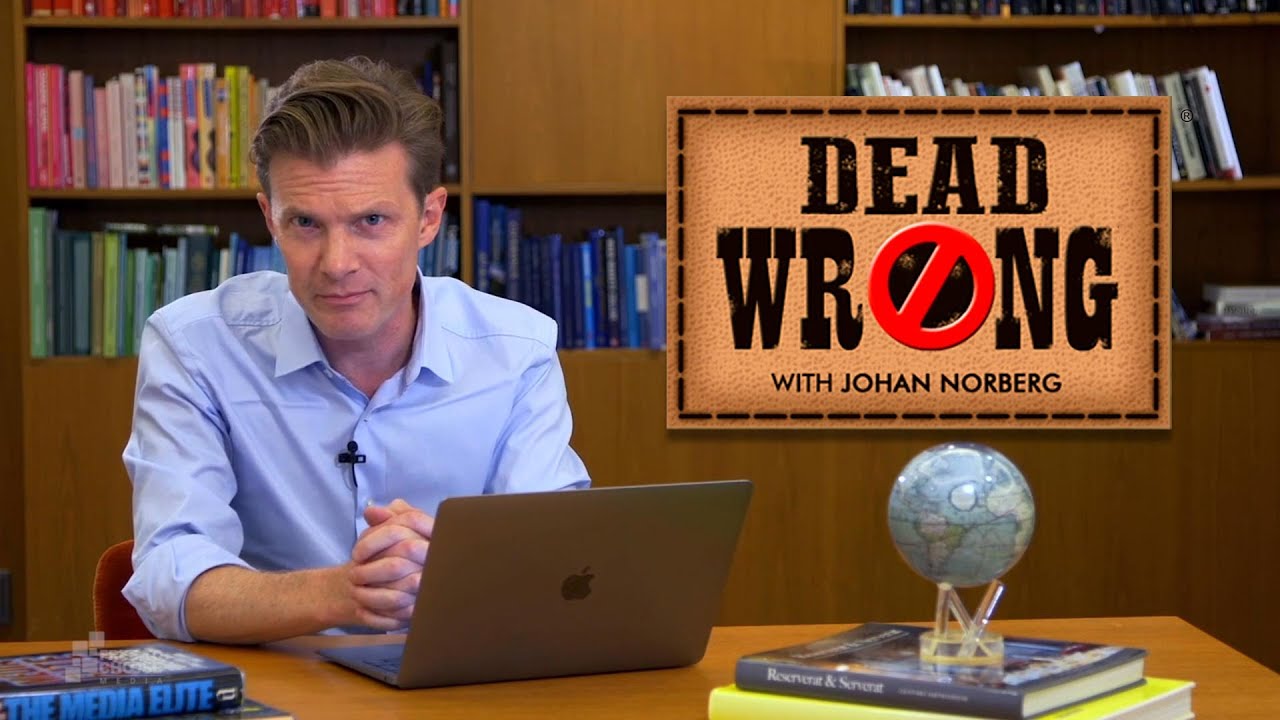I wrote last October about how poor nations that followed the pro-market recipe of the “Washington Consensus” in the 1980s and 1990s got good results. Johan Norberg addresses the same topic in this video.
Sadly, international organizations are infamous nowadays for the bizarre argument that developing nations should try to boost prosperity by imposing higher taxes and bigger government. I’m not joking.
I was even a credentialed participant at a conference on precisely this topic at the United Nations. It was a strange experience to be surrounded by anti-empirical people, but at least I wasn’t threatened with arrest, as happened at an OECD event.
Needless to say, these folks also think it’s a good idea to use foreign aid to finance bigger fiscal burdens in poor nations.
I’ve previously explained why this is a bad idea, at least if we care about achieving more prosperity for people. Simply stated, there’s considerable evidence that foreign aid retards economic growth by subsidizing bad policy.
Today, though, let’s focus on a different adverse consequence of aid, which is that it erodes the quality of governance.
For instance, the Economist reports on some spiked research from the World Bank, which showed that foreign aid subsidizes corruption.
Their conclusion was dispiriting. World Bank payouts to 22 aid-dependent countries during 1990-2010 were followed by a jump in their deposits in foreign financial havens. The leaks averaged about 5% of the bank’s aid to these countries. …The…working paper…passed an exacting internal review by other researchers in November. But, according to informed sources, publication was blocked by higher officials. They may have been worried about how it would look if the bank’s own researchers said that a chunk of its aid ended up in Swiss bank accounts and the like.
I’m a fan of “Swiss bank accounts” and “foreign financial havens,” but I want them available for taxpayers, not politicians and government insiders.
Sadly, foreign aid helps the wrong people get rich.
Jose Nino draws the most appropriate conclusion.
In 2019, a total of $39.2 billion was spent on foreign assistance, and at a quick glance it has left a lot to be desired. …Foreign aid is not a get-rich-quick scheme for developing countries. Instead of building wealth, it comes with some not-so-pleasant consequences for the recipient nation. …governments receiving aid no longer have to be accountable to their citizens. Knowing that US taxpayers will bail them out, some governments have no incentive whatsoever to innovate or keep corruption in check. …It is the height of naivete to believe that developing countries will magically become rich via wealth transfers from First World countries. It ignores many of the institutions of freedom—private property and federalism—that enabled countries like the US to become the most prosperous societies in human history.
Some folks may think Jose’s conclusion is too sweeping.
So let’s cite some more scholarly evidence.
Three economists, including one from the World Bank, found that foreign aid undermines democracy.
In this paper we investigate the relationship between aid and political institutions. One view of this relationship suggests that aid is needed to advance democratic institutions in developing countries. …A second view holds that foreign aid could leads politicians in power to engage in rent-seeking activities in order to appropriate these resources… By doing so political institutions are damaged because they became less democratic and less representative. Our findings support the second view. Foreign aid damages the political institutions of the country by reducing democratic rules. The magnitudes are striking. If the average share of foreign aid over GDP in a country were 1.9% over the period 1960-1999, then the recipient country would have gone from the average level of democracy in recipient countries in the initial year to a total absence of democratic institutions.
Here’s a graph from the study showing the negative relationship between aid and democracy.

The bottom line is that foreign aid doesn’t work. At least not if the goal is to improve the lives of the less fortunate.
If we want to help poor people in poor nations, the only practical answer is pro-capitalism policies such as small government, rule of law, and free trade.
P.S. Bigger government also enables corruption in rich nations.
Daniel J. Mitchell is a public policy economist in Washington. He’s been a Senior Fellow at the Cato Institute, a Senior Fellow at the Heritage Foundation, an economist for Senator Bob Packwood and the Senate Finance Committee, and a Director of Tax and Budget Policy at Citizens for a Sound Economy. His articles can be found in such publications as the Wall Street Journal, New York Times, Investor’s Business Daily, and Washington Times. Mitchell holds bachelor’s and master’s degrees in economics from the University of Georgia and a Ph.D. in economics from George Mason University. Original article can be viewed here.
Self-Reliance Central publishes a variety of perspectives. Nothing written here is to be construed as representing the views of SRC.





